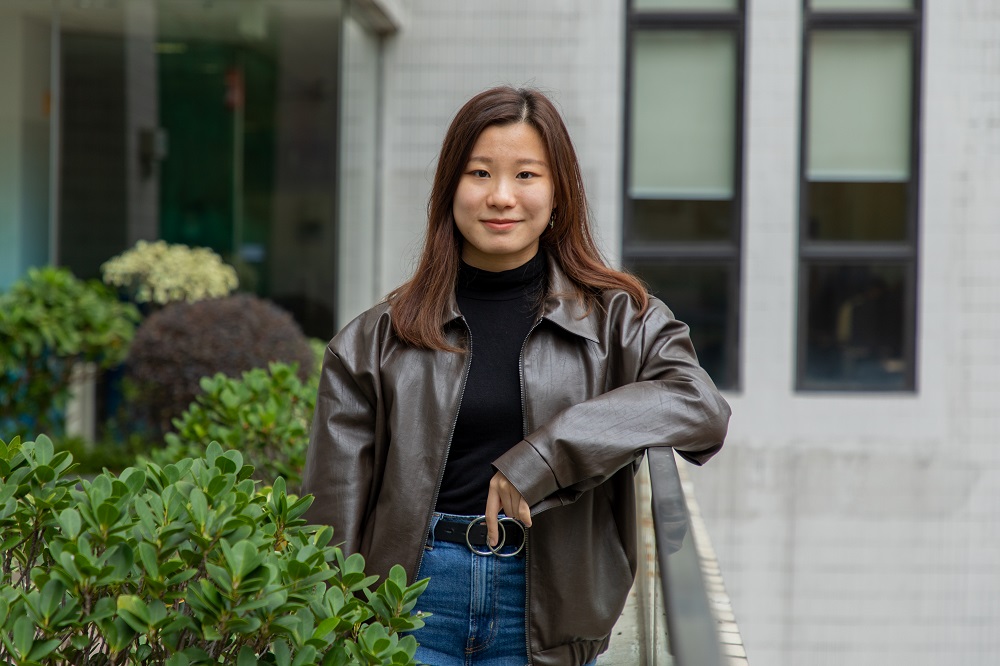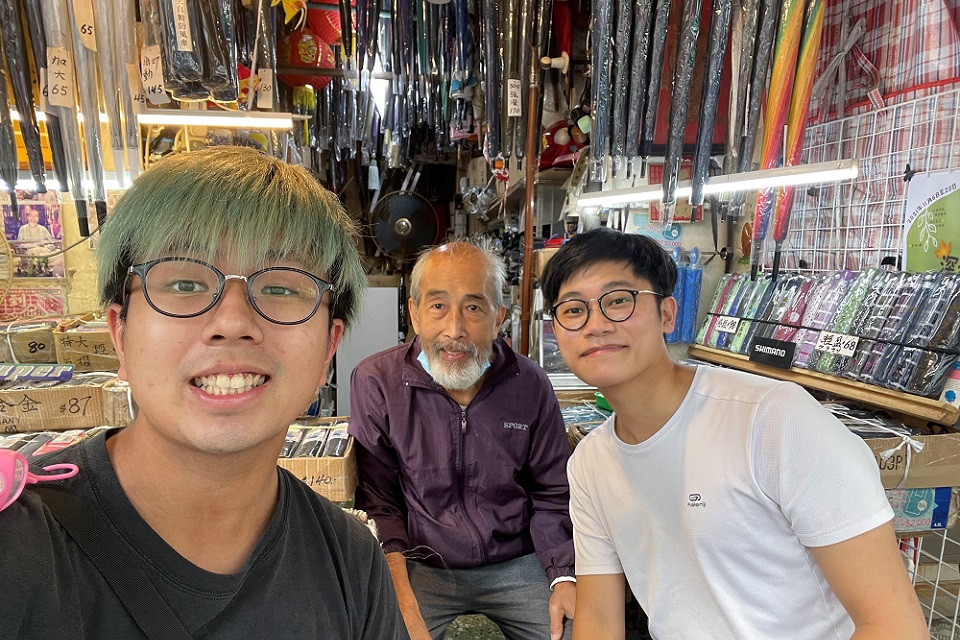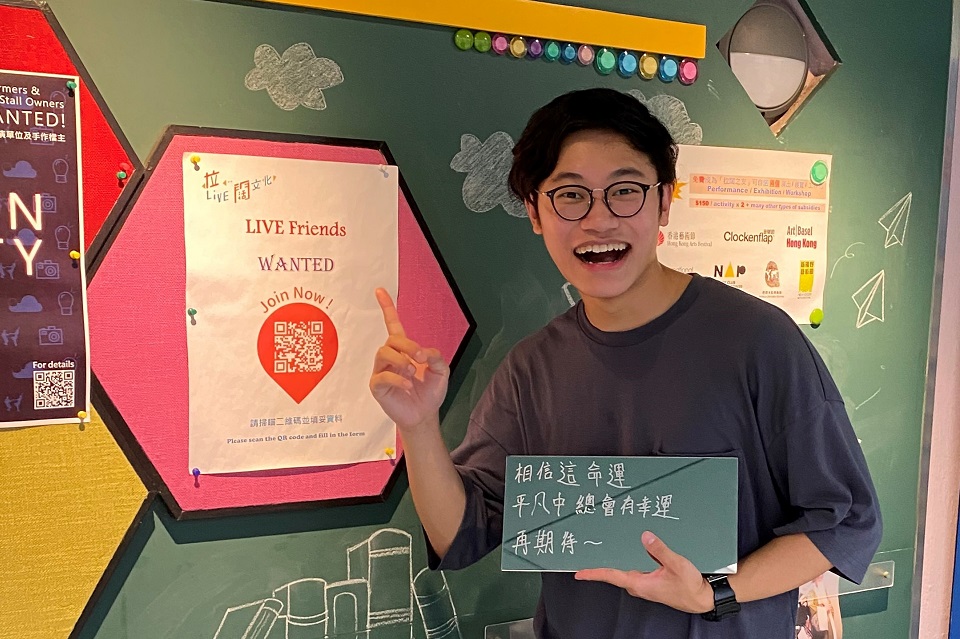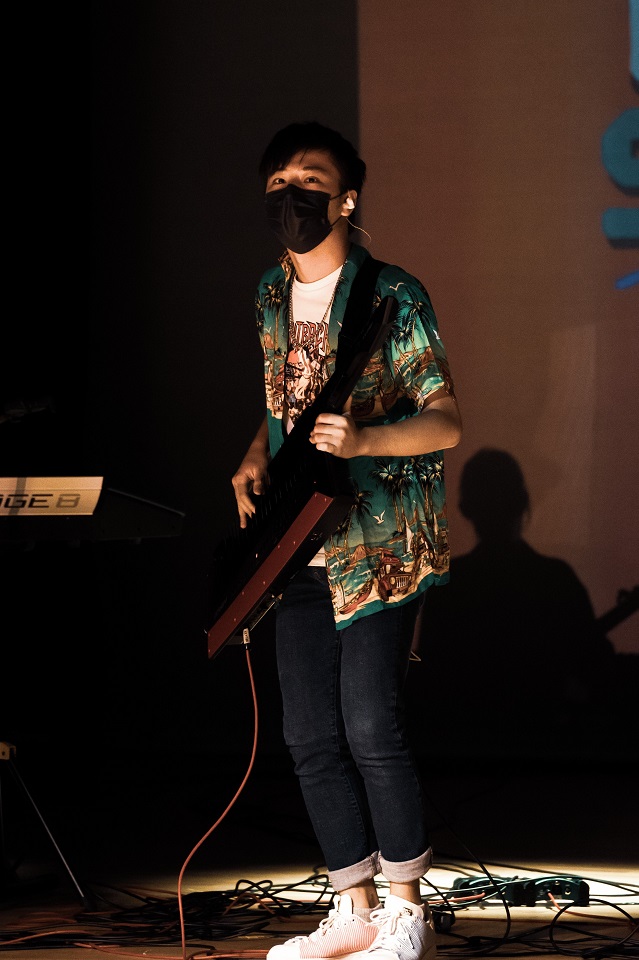Discover HKBU
From "Everything Lost, Everything Found," we find hope
22 Feb 2023
What would happen when two of the most coveted courses at HKBU made a crossover?
The Chinese Song Lyric Writing course (HUMN 3025) taught by Professor Chow Yiu-fai of the Department of Humanities and Creative Writing, has always been a much sought-after course by students across all disciplines. In a complementary collaboration, the 2021-2022 lyric writing course partnered with the Song Writing course (MUSI2068) led by Mr Edward Chan, Adjunct Lecturer of the Academy of Music, resulting in the “Everything Lost, Everything Found” project. Coupled with the support of the Centre for Innovative Service-Learning and the Tin Ka Ping Foundation, this marked the start of a successful crossover between the two courses.
The students decided on the theme “Lost and Found”, denoting what the city and its inhabitants have literally lost and found over the past year on multiple levels, from the city’s cultural heritage to personal losses like one’s health, job or ideals. They then interviewed 17 individuals from the community, including former journalists, ethnic minorities and people suffering from chronic diseases or addiction on how they rose above their losses and found the strength to keep going.
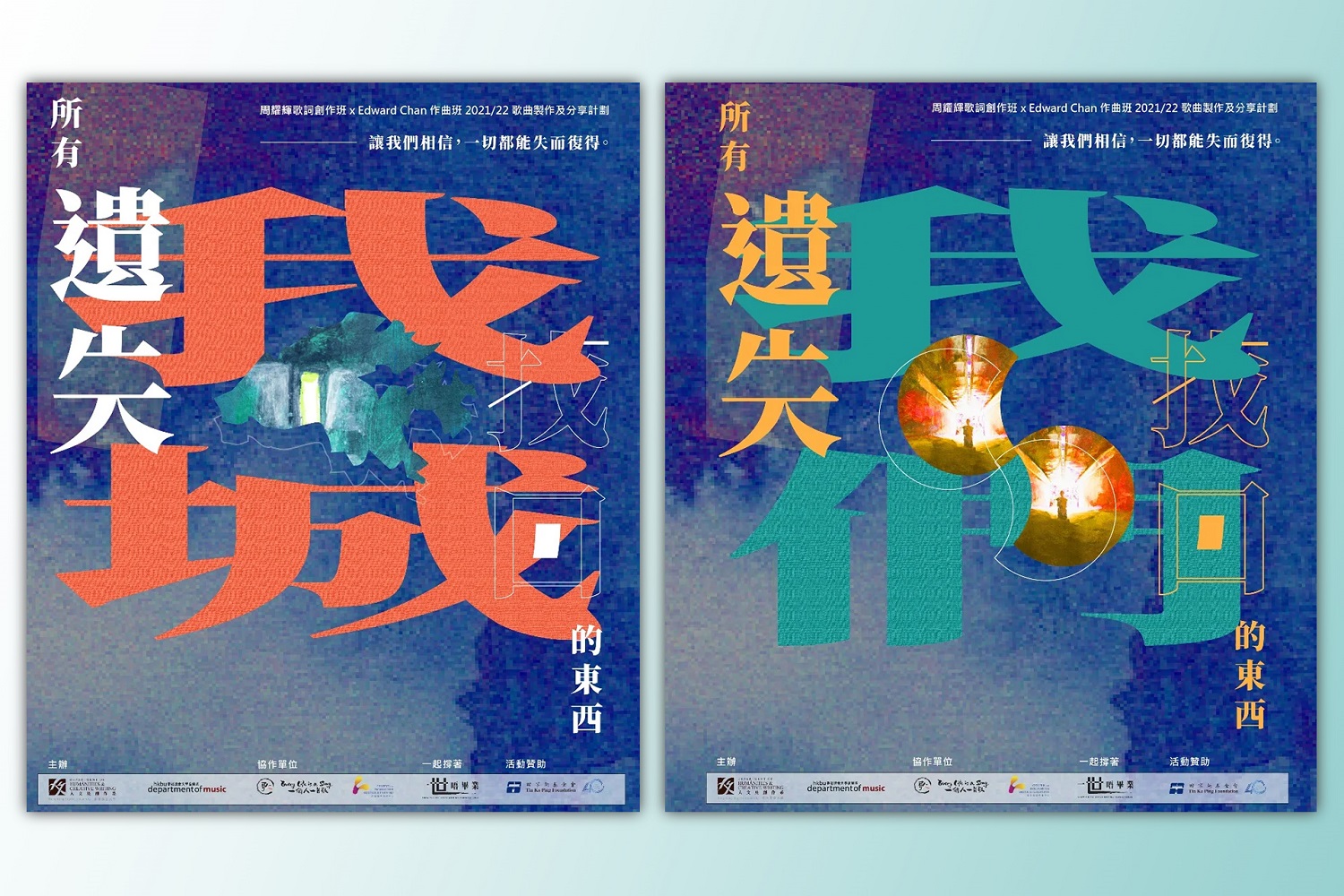

After listening to their stories, the students penned two sets of lyrics depicting both sides of the story. The song writing class then proceeded to composing the melody for each song. The final outcome was 34 songs in tribute of these resilient individuals and their redeeming journey.
It’s about how much you care
“Aside from sharing the techniques of lyric writing, what was just as important was coaching the students on how to interview their targets: listen; be respectful and curious; and ask the right questions. I also remind the class they have the autonomy on how they interpret their interviewee’s story. After all, it’s not an exercise of oral history. It’s about having empathy for others, being honest with your self-reflections and then capturing your interviewee’s stories and struggles in the song,” said Professor Chow.
Professor Chow also commended the students on their commitment to this project. “The workload of this course is demanding but no less rewarding. The students had the support of their senior fellows but ultimately, they drove the entire process from setting the theme to recording and creating the MV for the songs and managing their social media page.”


Dr Lisa Lam, Director of the Centre for Innovative Service-Learning, echoes the same sentiment. “The students made the effort to meet people who may have been marginalised in the community and made them feel respected and heard through the songs. This down-to-earth approach is what makes this project unique and is very much in line with our spirit of serving the community and being creative at the same time.”
Look for the silver lining
Stephanie Ng, a Translation undergraduate from the lyric class, elaborated on how they came up with the theme. “Hong Kong has changed a lot. On a societal level, we are losing many traditional trades like umbrella repairing and candy making, to name a few. Yet you see these craftsmen keep doing what they love, even with the knowledge that their trade will be obsolete soon. These personal stories of how people persist despite the odds is what gives us hope that not all is lost.”
For Marcus Kwong, a film student who made the music video for the theme song, he feels the people of Hong Kong have also had their share of losses like the loss of a job, one’s health, the opportunity to see their loved ones or the ability to feel happy. But it doesn’t have to be this way. “Even when things look gloomy, we can still find ‘hope’ even in the smallest places, that one day we will find what has gone missing. That’s the message we want to convey in our songs,” stressed Marcus.
Hence, we see Sapphire, a Lupus patient who didn’t lose hope of recovering sharing her healing tips with others. There’s also Leo, a former street photographer now making a living at a photo studio. He misses the spontaneity of street photography but has now reconciled with the fact that street photography will always remain his passion regardless of what job he is in.
“We’re used to expressing ourselves through our music, but this time, we are telling other people’s stories through our work. Partnering with people you barely know is challenging, but that’s also the beauty of complementing one another with our distinctive styles and reflecting our personalities in the songs,” says Ryan Pang from the song writing course.
Creativity saves the day
This crossover project was supposed to culminate in a concert with students performing the 34 songs they wrote. Dates and venue were set, that is until the pandemic raised concerns. The concert was called off in the end, but the students resolved this unexpected challenge by going creative and launching the songs online.
“Letting people know you care enough to write a song about them is one of the most precious things you can do for someone. Equally empowering for our students is they get to sing their own creation. The whole project is professionally executed from start to end and credit goes to everyone, in front and behind the scenes, for their determination to seeing this project through. I’d like to dedicate these two lines to my students.” Professor Chow concluded.
I look around for all the things I’ve lost
But nothing’s found for nothing’s truly lost
